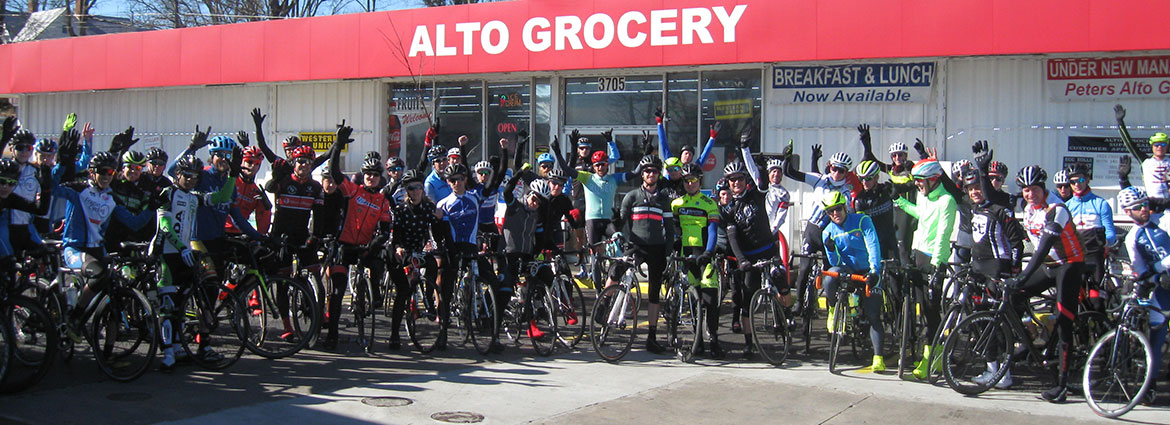The Cranberry Diaries: Chapter 2 Page 2
Days 11 and 12: Pisca
The day had come. To date, I’d managed to complete 44 laps around the sun; that amounts to over 16,000 days spent sucking oxygen into my lungs. Some of those 16,000 days stand out more than others. Often, the days that we remember most are the difficult ones, both physically and mentally. The next 36 hours would burn a mark into my memory banks that I’ll never forget. I knew Pisco would be a challenge, but I didn’t comprehend how hard it would be. Afterwards, Jeffery and Erin felt the same. We would climb into a section of the stratosphere in which we’d never ventured, and which none in our 7 person team can swear we’ll ever reach again.
We woke at sunup and ate a hearty breakfast. We broke down our tents and loaded our heavy packs onto the little burros. We were not in a rush. The first leg of the hike involved a 2 ½ hour trek up a narrow, rocky spine to upper base camp, which was a high altitude field that briefly leveled off at just under 16,000 feet. This was the same trail on which Christa-Lee nearly broke us in our first evening at camp. Today, we’d go to the top.
When we set out our pace was controlled. We took measured steps. The Skipper stressed that we should conserve our energy. At the time, I thought he was merely being careful. I am sure the Reader is thinking now, as I thought then, that a person blessed with my outstanding athleticism, my superb genetic resources, my inimitable genius and my most humble character would have no trouble in reaching the peak of Pisco and planting my flag at the top. How wrong you are Dear Reader, how wrong you are.
On the way to upper base camp, we walked in 4 different waves. My group went first and included Skipper, Mac Daddy, Erin and Jeff. Carlos, Christa-Lee and the baby, hiked up a short time later, and Jorge came up with the cook tent last. The Buhler’s Peruvian cook, a quiet, gentle, smiling fellow around 28 years old, stayed behind. The burro driver and the 4 mules came up somewhere in between. A total of 10 of us made the trek from lower to upper base camp. 7 would continue from there. All 115 pounds of Christa-Lee would have to reluctantly forego the final leg up Pisco and stay behind with her little one. One could see the regret in her expression. The fact that she carried herself and a 7 month baby up a steep mountain, without assistance, to an elevation of 16,000 feet was enough for me to know that this little lady was packing dynamite. Of course, I’d figured that out on the first day she charged up the hill.
My wave was walking at such a leisurely pace that our 4 burros caught us and went clopping by with their heads down and legs raised high. They were moving at a steady clip with our arriero behind urging the animals up the hill. Like most Peruvians we met out here in the way-back, he flashed a huge grin as he went by. The rocky ridge we were on was so narrow, we had to slide down off the trail to allow the train to pass. Our blanketed little beasts of burden motored by us even though they were laden with heavy loads. Big blue wooden crates, large nylon bags stuffed with tents and metal poles, and canvas bags jammed with food and cooking utensils were roped around the burros’ backs and bounced and jangled with every step they took. Between the clanging pots and pans, the clattering of the utensils in a metal box, the rhythmic swish of rope rubbing against nylon, the snorting and blowing of snot by the animals, and the melodious chants of the drover, it sounded like a jazz band headed up the hill.
We made it into upper base camp by noon. We set up our tents at just under 16,000 feet. We planned to rest and relax until midnight. At midnight, we would wake, eat, strap on headlamps, bundle up tight, step into our harnesses, stash our crampons in our pack, sling our heavy pack over our shoulders, and begin our final ascent into the pitch with only our halos to guide us. The final 2000 vertical feet would be spent climbing up the glacier to the highest point on earth 3 of us had ever been. If things went according to plan, we would summit at sunrise. I began to wonder if I’d lost my mind. I made damn sure I was wearing my magic rock necklace. I threw a little salt over my left shoulder too. I also spun around twice with my eyes closed, hopped up and down on 1 leg for 30 seconds, and sang Zippity-do-da-zippity-de day. I also jabbed needles in little Jeff and Erin dolls that travel with me everywhere I go.
Upper base camp had a different feel altogether. The winds were much stronger up here; it was also noticeably colder. In lower camp, if the sun was shining, shorts was an option. Not so up here. Upper base camp was a flat area the shape of a football, but it was a much smaller parcel of land than lower camp. Upper Camp may have been an acre; lower camp was 4 times that size. Upper camp was in the bottom of a bowl. 300 foot rock and dirt cliffs stared us in the face. The smooth white peaks of Pisco and Huandoy (Ron-doy) towered behind. We were at the green line—the elevation at which vegetation stops growing. The sparse vegetation that was here was low to the ground, and was tough and rubbery. Grasses clung to large rocks spread throughout the flat area we were in, giving the rocks the appearance of a herd of giant chea pets.
Thousands of these rocks were strewn about the area. The rocks covered the side of the hills, layered areas of the field, and continued over the edge tumbling down the slope that we had just climbed. The smallest rocks were the size of a concrete block, the largest that of a dump truck. Though the rocks weren’t in motion at the time, this was a set design in process. These mountains have been pushing up through the earth and tumbling back down at the sides for many, many moons.
During the afternoon we tried to rest. Shirey and I also explored the area. There were at least a dozen others in camp planning the same trek as us. We were all waiting for midnight. I learned the reason for the midnight departure was not only to witness the glory of a sunrise while sitting on top of the world, but also for safety considerations—ice is more likely to crack and give way in the afternoon sun. In the early morning hours, it’s still hard packed.
That afternoon in camp we learned that 3 climbers had fallen to their deaths in a ravine just over the mountain from us. They were a brother and a sister, ages 24 and 22, and a 23 year old friend, all from the United States. We saw the rescue plane buzzing a circle above. Rescue planes locate the bodies with GPS coordinates and direct the rescuers on the ground to a precise location. There are climbing teams here trained to pull bodies off the mountains. It is an arduous task and only expert mountaineers need apply. We learned later that the 3 who died were climbing on a rock wall and were roped together. One had probably fallen, pulling down the others. Their bodies could be seen from the plane deep down in a crevasse still roped together. With the plane continually hovering above, it was hard not to think of those 3 and how quickly it all can end.
That evening Jorge outdid himself. With all apologies to my mama, Jorge cooked the best fried chicken I’ve ever gnawed off the bone. The meat was so tender and succulent, and flavored with just the right amount of pepper and grease, that after licking the bone dry, I sucked out the marrow, rude as that may be. I didn’t feel bad though because Erin did too, and hale, she’s Jewish. Jorge also made homemade mashed potatoes. I thought I had died and gone to Birmingham.
After supper, we all went back to our tents to rest and to try and sleep before we woke at midnight. I tossed and turned like a sinner. This was the first time I’d ever tried sleeping at 16,000 feet, and I must tell you Dear Reader, it is damn near impossible. About the time I finally drifted off, I heard Skip say, “Dave, breakfast in 10 minutes.” I’ll be damned.
When we woke it was all business. We were filled with nervous energy. We ate scrambled eggs, sausage and toast, and drank hot tea. Jorge had woken an hour early to cook. I’m not sure when or if this mountain of a man ever slept. I encased myself in 6 layers of clothing, a stocking cap, gloves, headlamp and boots. The boots were not my regular hiking shoes. These were heavy duty hiking boots with a shell as hard as a turtle’s. The boots felt as if they weighed 25 pounds each. Trekking in those boots was like having concrete blocks for feet. We wore our harnesses and packed our crampons. We would hike to the glacier’s edge, stop and strap them on.
Stars littered the sky. Every available space above me was filled with a pinprick of blue light. Up here in this part of the stratosphere where there is no light to interfere with the glory of the heavens, the cosmos is brilliant and shocking: Shooting stars routinely leave long tracers across the sky; entire galaxies are visible to the naked eye; the Milky Way looks like a cloud of white dust; the moon, which was crescent shaped on this night, hangs so low I can touch it; and the Southern Cross hangs in the sky as it has done for ages, exactly like the ancient mariners described it, exactly as it will when I’m dust.
The 7 of us (Carlos, Skip, Mac Daddy, Jorge, Jeff, Erin and Humble C) hiked up 300 feet to the rim of the bowl to begin our journey. Once on top of the rim, we gingerly dropped down into a moraine at a dangerous angle. There was no grass on this side of the hill, only dirt and rock. At times, I thought I would lose my footing and go sledding down the slippery slope, taking out one or two of my climbing confreres along the way. Please let it be Jeff…or Erin…or both of them, I remember thinking. Skipper was in the front leading the way. We were moving single file down a steep zigzag route. I couldn’t see how far we dropped at the time, the hole was too deep; but I began to realize it was a long, long way down, elevation that would have to be regained in the near future.
After 30 minutes of dropping, our steps leveled out. We were now moving across a sea of huge boulders heaped one on top of another that seemed to stretch out forever. We were in the middle of the moraine. We were jumping, hopping, skipping, running and clambering on all fours at times. We were moving at a brisk pace. I began to sweat like a fat man in a sauna. I panicked. I could not afford to get wet now. I’d freeze and die and my former friends would concoct some twisted tale and leave precious me on the mountain. I stopped and shed 4 layers.
My headlamp threw out a cone of light that was about 10 yards long as measured from my eye sockets to the apogee. All I could see were boulders. I was walking at the rear since I’d stop to shed layers and a fear of being left behind gripped me. I always tried to capture the back of the boots in front of me in the penumbra of my headlight. When the boots moved beyond the circle of my light, tremolos of fear swept through my body.
Bouldering across this moraine was hard work. My legs and my lungs were stressed. My breathing was hurried. I felt glass splinters of lactic acid in my legs. My nerves were starting to vibrate, but since everyone else looked calm and collected, I kept my mouth shut and motored along, always looking down at the spot my foot would step next. Deep in this darkness we couldn’t see the ocean of rock we were in. I’ll tell you this Dear Reader—it’s a damn good thing.
After nearly an hour we began to climb out of the moraine, but not out of the rock. We had finally reached the edge of the rocky sea we were in and the slope of the land began to bend towards the sky. This steep slope was piled high with boulders that had been tumbling down from the top into the moraine. In 5 or 6 hours when we returned to this place, I saw that the gargantuan rocks were piled so thick that they had climbed the crest of the 300 foot slope on the other side of the moraine and were spilling over the top.
Because we were on rock, there was no visible trail. Instead, small rock cairns—a trekker’s universal sign that she is on the right trail—were stacked periodically along the way. We climbed the rocky slope for several feet when Jorge shouted in Spanish. Skip had taken the wrong path. He backtracked 30 meters and took a different angle up the rock hill. How Jorge knew what or where the right path was I’ll never know. There were no rock cairns in sight. There were no visible manmade markings on the rocks. But at the time, we had no doubt that Jorge was right. Jorge has a 6th sense and is a cognoscente of the Andes Mountains. As far as we are concerned, Jorge is a god.
We ventured out onto a narrow ledge that was a false flat. I could not see the end of the path and on each side of me was only blackness. The path was only 2 feet wide and I felt little stabs of terror. I feared I would fall off the side and plunge into the pitch. I had no idea how far I’d fall. On the return trip in the light of day I noted it would have been a 500 foot drop. At least death would have come quickly. I always try and look on the sunny side of everything.
After 2 solid hours of climbing across boulders big enough to crush my house, we reached the glacier’s edge. (Alternative beginning to this paragraph: “After two hours of reading this most vexing journal, we have finally reached the glacier’s edge.”) The edge of the glacier was much different than I expected. I though we’d be able to walk right onto the glacier and the ice and snow would eventually grow thicker. Oh how wrong your Humble Chronicler was, yet again. The edge of the glacier looked like a 10 meter wall of ice that abruptly halted our progress. Your most Humble C., who is usually a calm and equable fellow, thought, Holy Shit, I could die. We sat down and Skip helped us clamp on our crampons. My heart was pounding like I was on the start line at the Athens Twilight Criterium, stuck on the back row of the bunch.
I was cold when we tackled the ice wall. Skip, Mac, Jorge and Carlos walked right up the wall. They plunged their ice pick into the ice above their heads, lifted their leg and kicked the front of their boot into the wall (the front of the boots have long metal teeth that sink into the ice). They literally walked up the wall in this fashion. At the top, they pulled themselves up and over with their ice picks. They did it without faltering, but it still didn’t look easy—even they strained. Jeff and Erin looked like old time pros scampering up the wall, much to my chagrin. I looked like a pig trying to climb a rope, but somehow made it over. At least the 10 meter wall is over and done with, I thought at the time. I didn’t realize the wall we just went up was about 3 meters. I know I’ve said this before, but it’s a damn good thing.
We were now tethered together in 2 teams. Carlos was solo. On my team, Skipper was at the front, followed by Jeff, Erin, then me, Humble C. Mac Daddy and Jorge were on the other rope team. There was a length of rope about 20 yards long between each person. The rope between each person should remain stretched to nearly its full length to avoid tripping over, tangling in or damaging by stepping on with the metals spikes on the bottom of our boots.
The first part of the glacier was easier to climb on all fours it was so steep, though the others managed to step up with the aid of their pick. The severity of the angle of the hill sent shock waves rippling through my body. My id was screaming at my ego for getting all of us into such yet another unfortunate conundrum. I could see headlamps on the trail in front of me. They looked like lights on a radio tower—they were straight up in the air. It was intimidating. This was truly a stairway to Heaven.
Ascending I realized that there were a series of vicious humps of ice to tackle, one after another. There were brief respites over the knob of each hump—2 steps of level walking, but the slopes were so steep, and the elevation so high, that each step was a laborious effort. Sisyphus my ass, what about me?
There were other teams both above us and below us. Stopping periodically to catch my breath and gather my wits, I looked at the line of lights illuminating the slope. We looked like a small army advancing up the hill with torches. The glacier was so white that light from the stars and the moon were reflecting off the snow and providing some visibility. Mostly, we saw a huge white hump above us silhouetted by the nighttime sky, which had taken on a bluish hue. When we reached the top of one hump, the next one came into view, with Pisca always towering behind like a protective mother.
Around 18,000 feet my legs felt as if they were filled with sand. I felt heavy and slow. Each effort was forced, each step a struggle. She’s gonna blow. Above me, everyone kept moving up the climb, one step at a time. The mad maenad in front of me began actually towing me up the climb. “Do you mind,” she asked. “Hale no,” I said. She, Shirey and the Skipper looked strong. I was slowly dieing. Carlos’s light was bobbing 200 meters ahead as he showed the abecedarians on the slope the strength gained from decades of mountaineering. Carlos Buhler, even at 52 years of age, is still running on rocket fuel.
As we climbed higher, we walked past deep crevasses. Crevasses are holes in the ice and these were deep and dangerous. The openings in the ice had been curved and rounded by the wind into fantastic whorls and spirals. We walked 10 meters to the side, still close enough to raise the hairs on the back of one’s neck. We also came to the 10 meter wall. My jaw hit the floor. We were expected to walk up an ice wall 3 times the height of the first one. Skip was at the top, ice pick plunged into the snow, on his side, gripping the pick in a headlock with his underarm, and holding the rope taut while we walked up the wall. With me, it was easier to extend my arms above my head, pretend I was Superman, and let Skip pull me up the wall. By this point, I had been stripped of all my pride and dignity anyway.
Continuing to the top I kept my eyes focused on 2 stars hovering above me; I was looking for inspiration. All hope was dashed when it turned out the 2 lights weren’t stars at all. Instead, they were the headlamps from other trekkers. At that point, my psyche shattered like a plate glass window. So did my body. I was a dead man barely walking. O Fortuna, thou hast broken me beneath your wheel. I hated to do it—I hoisted the white flag. 200 meters from the top I was overcome by an afflatus: I bent over, hands on knees, and said, “Skip, unrope me; I’ll be up in a bit. I’m jes gone sit down here and take a brief nap. I’ll be up later.” Skipper would have none of it. He picked me up by the scruff of my neck and kicked me to the top.
Old King Sol’s head was barely peaking over the peaks of the mountains in the distance. We watched Old Sol ascend in an arc into the sky. We were surprised at how fast it soared above the top of the peaks and came into full view. It was 5:30 in the morning. We were on top of the world. We took a round of photos. In the photos we are all bundled beneath Gore-tex with our ice picks raised into the air. We all were cognizant that this was an epic moment in our lives.
Around 6 a.m. we dropped off the summit and plunged down the steep path back to camp. Thousands of ice crystals tinkled like wind chimes as the wind scattered them down the glacier. Descending was much easier, but I still had to lift my legs much higher than normal because of the long teeth on the bottom of my boots. My legs felt like heavy blocks of stone. Descending was still hard work. Because we’d reversed our positions, I was now at the front of our line, and I was motoring down the hill with mercurial speed. Things were back to normal—I was once again at the front of the group putting everyone under pressure. My world was shattered when Carlos stepped up beside me and said, “Hey, maybe you should walk a little faster. Watch me, I’ll show you how.” He sped off down the hill leaving me in his wake. I stuck a few needles in my Carlos Buhler doll later that evening for that little lese majesty.
We made it to the edge of the glacier and I was gone, an idiot, mentally and physically. My body was blown to smithereens. I was utterly obliterated. And we still had to cross the moraine. At this juncture I had a full view of the size of the moraine we had crossed earlier, and had to now cross again. This would take awhile. And the wall we had to climb up on the other side was massive. Shirey and I had yet another laughing fit followed by a crying spell. We were like 2 madmen faced with an impossible task. I was temporarily insane and Shirey was crazy as hell. Our brains needed oxygen.
Shirey and I stayed with the others crossing the moraine, but lost contact with them climbing out. I could no longer feel my legs—they were both dead. We were left for the Condors while the other 5 glided away. At 11 in the morning, 10 hours after beginning our trek, Shirey and I were the last 2 to stagger into camp. Shirey shouted for cranberries like a raving lunatic. I lay down and quietly died.
But the day wasn’t over. Later in the afternoon, after eating and resting, we broke camp and descended the rocky trail to lower camp because it would be much easier to sleep at the lower altitude. We hiked down that afternoon beneath a scorching sun. In less than 30 hours we’d gone from a parched, sun-blasted environs into a zone of permanent ice, and back again. We were on the final section and there was no need to hurry. We stopped and sat in the sun using a boulder the size of a Volkswagen as a backrest. I was now in short pants and a shot sleeve shirt. King Sol, my long lost friend, was baking me.
Late in the afternoon, we made it into camp. That evening we drank wine and large bottles of beer we bought from the arrieros. We toasted our trip. That night was the best night’s sleep I ever had above 14,000 feet. Once again, I was heralded as a hero by my loyal subjects that reside on a permanent basis in the empire of my mind.
Day 13: Unlawful days
The next morning Cecil picked us up in his van. We packed and headed back to Juaraz. Our van bumped and bounced along on the dirt road down the sinewy descent. On the way down, we stopped and talked to a handful of indigenous children who were wide-eyed with amazement when we went bouncing by. They were dirty and barefooted and were playing in front of their small hovel by the side of the road. There were about 6 or 7 of them ranging in age from 3 to 7. Their mother sat on the stoop grinding seed to powder on a large flat stone. Corn was hanging from wooden poles drying in the sun. We had to coax the kids to come to us with outstretched hands filled with chocolate treats. These children from the high mountains were a little afraid of us—we were an anomaly in these parts of the way-back. When Mac took their photo with his digital camera and showed it to them, they crowded around his camera cackling with glee and holding both hands over their gaping mouths. They were amazed. I doubted from their reactions that they had ever seen their photos before. They were sweet and innocent and naïve about the world in which they lived. Their entire world was on this mountainside, a place they’d learned to live quite superbly I might add. I’m not sure who is better off, them or Humble C.
The only other adventure that occurred on our return trip was when we outran the law in a van loaded with 6 people and crammed and jammed full with dozens of bags, supplies and other accoutrements normally carried by adventurers in this rugged section of the wild blue yonder. I’ve been advised to make no further comments on this bit of mischief until the statute of limitations runs. Other than our brief brush with the law, it was just another glorious day in God’s backyard. Once we returned we spent the day shopping in Juaraz, a habit I was becoming much too fond of. That evening we celebrated at the Bistro. We drank our first Pisco sour, the national drink of Peru. Later, we carried Jeffrey home on our shoulders through the streets of Juaraz. I think he has put on a few pounds.
Day 14: Damien and Family
Day 14 was spent packing and preparing to climb our second glacier, Vallunaraju, elevation 18,700 feet. We visited a bakery we’d grown partial to and purchased a bagful of hot, hand size peach pies and a dozen of Jeff’s favorite—homemade hot pockets stuffed with cheese and shredded beef, eggs and sausage, or an assortment of other fantastic wonders. We also did more shopping. Wandering around Juaraz and diving in and out of all the street vendors’ stalls and all the open air clothing markets and all the craft stands set up on the street is like being a kid at a carnival. Humble C loaded up with more regalos for those left at home. Humble C has been crowned with plenty of panjandrums during his short reign, but a fool is not one of them.
That afternoon, we ate pachamacha with Damien’s family at their house. Damien’s family owns the trekking company and guide services where Skip and Jorge work. They live in a nice 2 story cement home on the outskirts of town just as the road starts to slope up the hill. It was about a 2 mile walk from Mama Mesa’s. In Juaraz, we walked everywhere we went. It was a relaxing and less stressful way of life that was easy to fall into. Damien’s family cooked the pachamacha in a lot across from their house. They had been cooking all day and by the time we arrived the delectations were ready. We went outside with them and watched them pull the leaves off the top of the hole in the earth, then gather up the hot stones spread throughout for use at some later date. Nothing is wasted here. Underneath were dozens of potatoes, corn cooking inside its husk, and lamb cut up and wrapped in aluminum foil. They’d prepared a feast.
We had a roaring good time as Damien’s family—2 older ladies, Damien’s wife, his children, and his brother—gathered round us at the table as we ate. The table could only seat 6—Skipper, Mac Daddy, Cecil, Erin, Jeff and Humble C.—so the family just stood around us leaning against the counter. The 2 older ladies wore traditional dresses with a hat. Damien’s wife wore western style jeans and shirt, but her features were pure Peruvian. The ladies thoroughly enjoyed themselves, launching bombs at Mac Daddy in Spanish, only to have the entire crew burst out laughing. This home was nice, but these were humble people in humble surroundings. This was a mingling of 2 cultures without outside interference. These are the experiences that expand the bubble that is my brain.
After saying our valedictions, we spent the rest of the day wandering the streets of Juaraz at a leisurely pace. That evening it was back to the B and B to refuel with pizza and cold beer. Tomorrow promised to be another big day. But Vallunaraju was going to be much easier; Mac had told me so. Looking back now, I’m surprised I didn’t smell a rat.
Days 15 and 16: Vallunaraju
On Day 15, 4 of us (Erin, Jeff, Cecil and Humble C.) rented mountain bikes and climbed 5000 feet to our next base camp at the base of our next glacier, Vallunaraju (18,700 feet). We would tackle the glacier once again that same night after midnight. We climbed a dirt road imbedded with rock all the way up to base camp. The total climb took us 5 hours of riding. We climbed to nearly 15,500 feet. Though the climb was steady, it was constant. By the time we reached camp, I knew my gasket was blown. I was moving in slow motion.
Skip brought the tents and other supplies up in a taxi. This camp was inside an extremely narrow canyon with high cliff walls on either side of us soaring 1000 feet above us. By 2:30 in the afternoon, the sun disappeared behind the cliff walls and the temperature plummeted. It was cold and blustery. We ate sandwiches and drank hot cocoa inside a block shelter. We heated water on a small gas stove. By 4 p.m. I was in my tent. It was much to cold and windy to wander around outside. I was exhausted and I managed to finally fall asleep.
We woke and departed at 2 in the morning. There were 5 of us: Skipper, Cecil, Erin, Jeff and me, Humble C. This time I knew to start the climb with fewer layers. The trailhead was 100 yards from our tents. We hit it and straight up into the sky we went. I climbed, groped, crawled and scrabbled up the first pitch of the hill. It took a solid hour of climbing in this fashion before the grade slackened in the slightest. Once up and over the first rock and dirt section, the grade lessened, but not by much. We found ourselves pushing up a steep dirt trail intermittently interrupted with rocks and boulders pouring down in dry streams from the top. Eventually, the dirt faded and the landscape changed to rock. This was not easier than Pisca. I’d been lied to, deceived once again.
It took 2 ½ hours to climb to the edge of this glacier. It was an arduous and taxing undertaking. By the time we arrived at the ice, it was curtains for me, lights out. I whimpered to Skip that I thought I’d better turn around. This time, he didn’t argue. He cut me loose. They forced me to descend the distance back to camp on my own. I turned and left leaving them to their destinies.
While they were busy summiting yet another glacier, I tried to grope my way back down the mountain. Once again, I was walking across rock. Every 30 meters I would stop and raise my headlamp and scan the area with my searchlight like a prairie dog. I was looking for rock cairns. When I couldn’t see one, I went the way that seemed correct.
I was so tired I was stumbling in my boots. On certain steep sections I even thought about flinging myself over the edge. That’ll teach those bastards. But I was much too scared. Somehow, I kept finding the trail of dirt that interrupted the rocky outcroppings. Finally, as the first light of morning filled the sky, I could see my tent 1000 feet below me. Praise be, I was almost home.
Near disaster struck here. In my haste to get home, I strayed off the trail. Instead of climbing back up and beginning anew, I continued pushing down out over a ridge thinking a path would come into view. This was an improvident decision. Suddenly I found myself on a slippery, dirt and gravel slope hanging onto a dry, crackling tree with my arms and hands. I was literally lying on my side. I’d gone too far down. I had seriously screwed up. I pulled myself over the skinny tree trunk, like a towel hanging on a hook. I laid in this position for a short time trying to gather my strength. One slip and Humble C was history.
I could hear the roots of the tree pulling out of the ground. I was forced to let go. I slid across the slope of the hill on my belly with the full knowledge that one slip and I’d be tossed 800 feet onto the rocks below. I slid over to another cluster of dried trees. From there, I slid around about 10 more meters and I found the trail. I’ve never been as relieved in my life. I took every step with caution from there on down to the bottom. When I finally stepped down off the hill and into the road 100 yards from my tent, I could barely move. Once at my tent, I unzipped the front door, took off my boots, and quickly fell into a deep slumber. I woke up 3 hours later baking inside my odoriferous yellow tent under a blazing sun like a biscuit left too long in the oven. When I exited my tent I looked up and saw the others come sauntering in. My only salvation was that Shirey was shattered too. I threw a bag of cranberries at his head and stormed into my tent.
After breakfast, Jeff, Erin and Cecil opted to descend on mountain bikes. After an early flat, I opted for the van. The 3 mountain bikers had the time of their lives descending wicked, technical downhills in gullies and washes filled with giant rocks. On the way down Skip and I could see the 3 leaving a cloud of dust in their wake as they flew down a ravine.
That evening in Juaraz we ate at the Bistro one last time. We again celebrated, this time with a full house: Carlos and Crista-Lee, Jeffery and Erin, Skipper, Cecil, Mac-Daddy and me. We made toasts all around to both new and old confreres. The fare was superb, as always, and the owner treated us to thick wedges of homemade chocolate cake. Life doesn’t get any better than this, except in my head.
Day: Last
The next day we said our final valedictions. Skipper, Mac-Daddy and a 16 year old new Peruvian buddy, Louis, helped us carry our bags to the bus station. We boarded the bus and rumbled out of town with no problems. We arranged for the front seats on the top of the bus for the trip back into Lima. We hopped aboard our plane just after midnight. What a trip this had been. Once on board, I tilted my seat back, guzzled a cold one, closed my eyes, and ventured back to the empire in my mind, a place I know where I’ll always be king.
The Humble Chronicler















